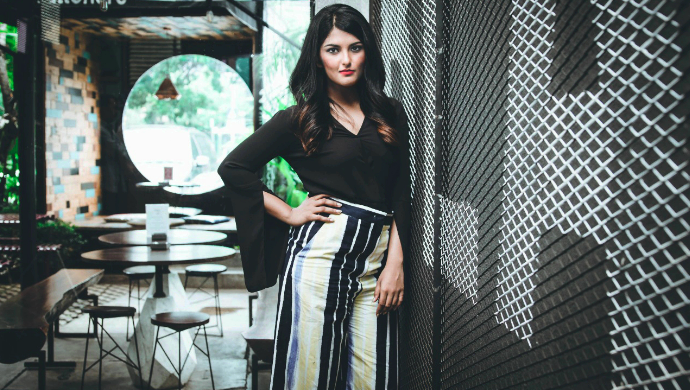Zilingo is exploring B2C opportunities in new countries in Southeast Asia; on the B2B side, it already serves America and will soon ship to some parts of Europe soon

Zilingo Co-founder and CEO Ankiti Bose
A massive US$82 million in investment in just three years of starting operations! Probably, Singapore-based Zilingo is the only e-commerce company in Southeast Asia that has achieved this feat.
Zilingo, started in october 2015 as a mobile-first marketplace that connected sellers/retailers in Thailand to online shoppers across Southeast Asia, has since witnessed a stupendous growth, expanding to multiple markets in the region and attracting big-ticket investments from renowned VCs.
The startup — which currently sells in Indonesia, Thailand and Singapore; ships internationally to four more countries; and has supply bases in Singapore, Thailand, Indonesia, China, Bangladesh, Vietnam and Cambodia — has just announced a huge US$54 million financing round, led by Belgium’s Sofina Group.
On the sidelines of the Series C financing round, e27 chats with Zilingo Co-founder and CEO Ankiti Bose to know about the company’s growth plans.
Edited excerpts:
Belgium-based Sofina is one of your lead investors in this round. What is Zilingo’s synergy with Sofina?
A selection of Sofina’s direct investments in the online retailing space include The Hut Group (the UK), Vente-Privée (France), Flipkart (India), Spartoo (France), and now Zilingo (Southeast Asia). Through their prior investments in Myntra in India and in Vente-Privée in Europe, Sofina has also seen the online apparel e-commerce markets take off and we believe they are well-positioned to be our partners in helping us achieve the same for Southeast Asia.
Being just a vertical online marketplace, why does Zilingo require a huge amount of investment?
Zilingo runs the entire B2C marketplace as well as B2B marketplace locally in three geographies and ships globally on B2B. We provide a host of services including inventory management as well as third-party services to the merchants. The latest round would be used to further grow our merchant network in multiple countries, as well as invest in brand building.
What are your grand plans with the funding?
It has been an incredible few months for Zilingo. The company has emerged as one of the fastest growing players in the region. We have grown 11x in terms of revenue, launched a huge and successful TV campaign in Indonesia, which has resulted in a big spike in our growth in terms of buyers, orders and sales. We have also expanded the merchant ecosystem to include a tremendous artillery of services, making Zilingo a one-of-a-kind product over 10,000 merchants across Asia.
The fresh infusion of capital will be used to focus deeply and boost the Indonesia business, foray into other Southeast Asian markets and cross-border businesses. The plan is also to further expand the supply base across Cambodia, Bangladesh in addition to ASEAN markets.
You have both B2B and B2C platforms. Which vertical brings you more revenue?
Many of our B2C merchants are also our B2B customers. So, the two businesses are highly interlinked. We have seen tremendous growth since our buyers on B2B became sellers on B2C. B2B is more profitable for us, however both are almost equally large by share of total business.
Given that you are into cross-border business, blockchain can be a great tool to make cross-border payments more efficient and trustworthy. Have you ever thought of integrating this tech into your platform?
Blockchain has been on our minds for sometime now, and we recognise its potential in solving problems of distributed trust.
What makes the headlines is Bitcoin and Etherium – i.e tradable currency. But taking a step back, there are some more places where blockchain can have an equally big or bigger impact. Some of the really big challenges for us with cross-border shipments and Zilingo Asia Mall are working with multiple global partners and lots of logistical complexity.
The core blockchain technology can let us ensure that all intermediate partners, including sellers and buyers, have shared visibility and trust into and ownership of transactions taking place, goods changing hands, makes things transparent for everyone.
Zilingo already acts as a significant trust layer by providing guarantees for shipments from another country, customer service, and secure payment systems, all backed by Zilingo’s brand. Blockchain would let us extend this trust further and more efficiently.
Malaysia and the Philippines are two of the fast-growing fashion markets in the region. Why have you left out these markets from your expansion strategy?
Malaysia and the Philippines are part of our expansion plans. We have seen the tremendous scope of growth and interest these markets have for a business model like Zilingo. We are definitely planning on venturing into these markets in 2018.
Are you looking to foray into other markets in Asia, as well as Europe and America in the recent future?
We are exploring B2C opportunities in new countries in Southeast Asia. On the B2B side, we already serve America and will soon ship to some parts of Europe as well, all within 2018.
Is Zilingo venturing into new verticals, moving forward?
We are expanding into beauty further, in addition to fashion and apparel.
How has been your entrepreneurial journey so far? What have been your key learnings?
On the product side, our key learning is that Southeast Asia cannot and should not be painted with the same brush. Every market is extremely different from the other.
Also Read: ZPX raises US$1.3M to launch a decentralised cryptocurrency exchange in Singapore
When it comes to human resource, I truly have seen that you gotta hire the best millennial talent and let them do their thing. We are an extremely diverse team and that brings out great nuances, growth hacks and perspective on the business.
The post We’ve learnt the hard way that the entire Southeast Asia can’t be painted with the same brush: Zilingo CEO Ankiti Bose appeared first on e27.